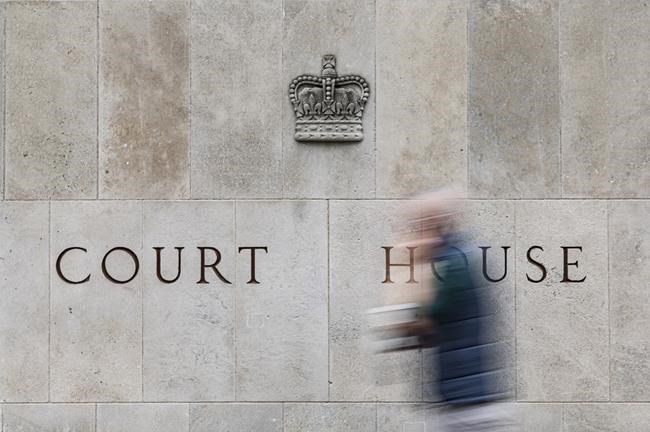OTTAWA — An Ontario Superior Court judge has dismissed a major Muslim charity's bid to halt a Canada Revenue Agency audit, saying it is too early to intervene in the federal examination.Â
In his ruling, Justice Markus Koehnen said while he is sympathetic to many of the Muslim Association of Canada's arguments, a court should not involve itself in a government body's process while it is still playing out.
"In some respects, the current status of the audit can be seen as a work in progress," Koehnen wrote. "Intervening now would be akin to the court interfering in the middle of a process and telling a party that it could not think a certain thought as it was working through a problem."
The association, a grassroots Muslim charity, contends that a long-running revenue agency audit of its activities is fundamentally tainted by systemic bias and Islamophobia.Â
The association had asked the court to halt the audit on the grounds it violates Charter of Rights guarantees of equality and freedom of religion, expression and association.Â
The federal government argued the case should be dismissed, saying the revenue agency's selection of the association for an audit and the subsequent examination do not infringe Charter rights.Â
The association, known as MAC, promotes community service, education and youth empowerment and says over 150,000 Canadians use its mosques, schools and community centres each year.
While applauding elements of the court ruling, the association is considering an appeal, saying Thursday the decision places Canadians at the mercy of potentially biased government action.
The court ruling comes amid public scrutiny of the Review and Analysis Division of the revenue agency's charities directorate, which is conducting the audit.Â
A 2021 report by the Ottawa-based International Civil Liberties Monitoring Group said the division works with national security agencies to carry out such audits, with little accountability or independent review.
In a written submission to the court, the federal attorney general said the revenue agency's preliminary audit findings identified "several serious issues'' concerning the Muslim Association of Canada's non-compliance with its charitable registration obligations.Â
These included involvement in political activities of the Egyptian Muslim Brotherhood, buying considerable real estate, providing support to an organization listed as a terrorist entity and issuing improper donation receipts, federal lawyers said in the filing.Â
The association "has not raised credible evidence that it was unfairly targeted by the CRA, nor that in conducting the audit the CRA treated MAC any differently than it would another charity,'' the submission added.Â
The charity said the government takes a wrong-headed approach from the outset by identifying the risk of terrorist financing with minority groups it labels as foreign, in particular Muslim organizations.Â
It also took exception to revenue agency documents that have surfaced in the case — an Audit Referral Analysis created in preparation for the examination and a "desk review'' for the audit team to guide the process.Â
The association considers both documents highly problematic, saying they rely heavily on biased and Islamophobic sources.Â
The revenue agency asserted that the association had political links to the Muslim Brotherhood political party because two of its former directors acted as advisers to Mohammed Morsi, the Muslim Brotherhood candidate in the Egyptian election of 2012, Koehnen noted in his ruling.
"I very much doubt that the charitable status of the United Way would be revoked if two of its former directors happened to participate in the election campaign of a Canadian political party," the judge wrote.
"To the extent that some of the religious philosophy of the Muslim Brotherhood might also be reflected in the political party of the same name, I very much doubt that a Christian church would have its charitable status revoked if it made statements that were similar to ones made by certain Canadian political parties to promote greater social or economic equality. Indeed, Canadian churches do so regularly."
The revenue agency also highlighted the association's allegedly non-religious activities, such as a soccer league for Muslim youth and daycare centres for the Muslim community, the judge noted.
"It is difficult to understand how makeup classes, sugar shacks, puppet shows, ski trips, dodgeball, movie and karaoke nights, ping pong, air hockey tables, or 'a play mat with toys for smaller children' relate to terrorism," Koehnen wrote. "Once again, I would be surprised if a church or synagogue had its charitable status revoked because it offered any of these activities.
"Although I sympathize with many of the applicant's arguments, there are other issues that CRA has raised which might provide a more solid basis for some sort of corrective action," Koehnen added.
"The combination of the lack of a final decision and the absence of benchmarks against which to measure CRA's conduct leads me to decline to decide this case."
The court's decision "to recognize the inherent bias and prejudice against the Muslim community in the audit validates our long-held concerns," Sharaf Sharafeldin, a senior MAC representative, said Thursday. "It underscores the urgent need for reform."Â
However, he added, the association is disappointed by the court's choice not to address these violations immediately. "We remain committed to pursuing justice and ensuring that the rights of Canadian Muslims are respected."Â
This report by The Canadian Press was first published Sept. 14, 2023.
Jim Bronskill, The Canadian Press




